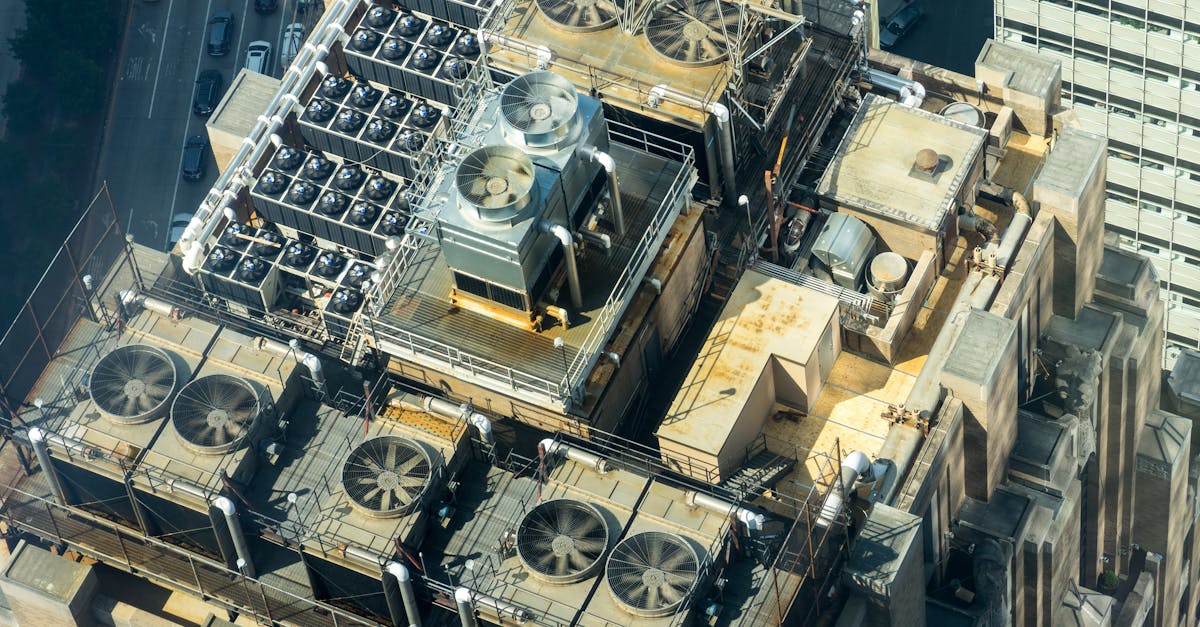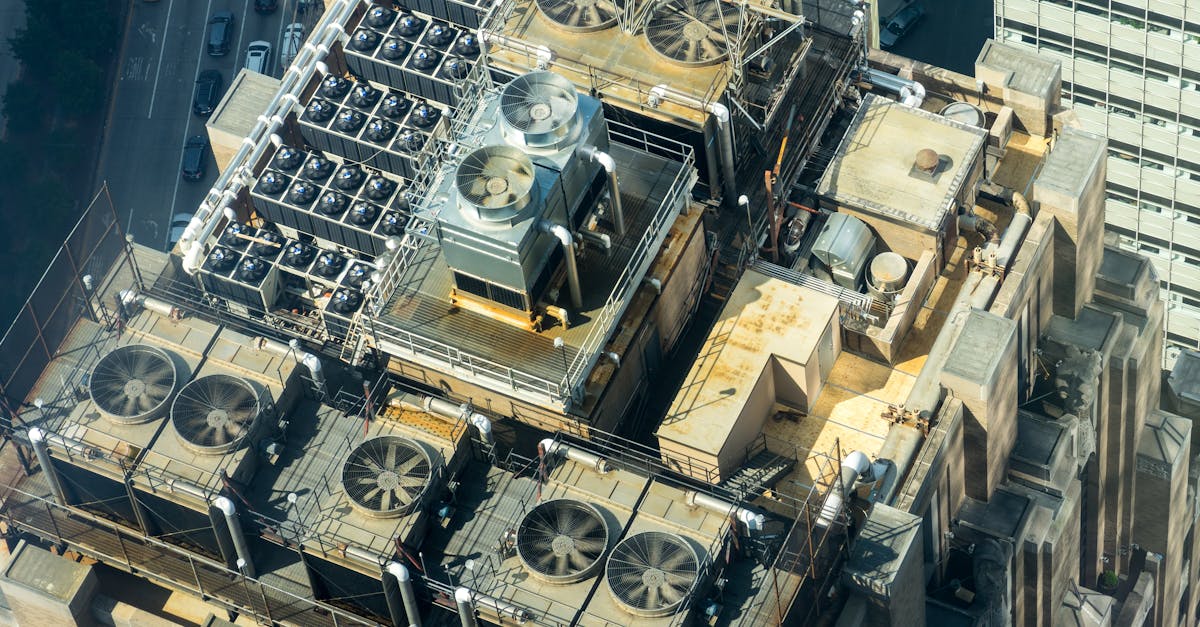
Maintenance Costs Over Time
Maintenance costs for heat pumps can fluctuate based on various factors including the system's age, usage patterns, and the local climate. Regular servicing typically involves changing filters, checking refrigerant levels, and cleaning components. These routine tasks can help prolong the lifespan of the unit and enhance efficiency, ultimately reducing energy bills. Homeowners should anticipate setting aside a budget for annual maintenance visits, which can range in cost depending on the service provider and any specific repairs needed.
Unexpected repairs may occur, particularly if a heat pump is not maintained properly. Issues such as compressor failures or electrical problems can result in substantial repair costs. Heat Pump Installation and Repair in this context becomes crucial, as finding reliable professionals ensures quality work that can prevent recurring issues. Homeowners can mitigate repair costs by investing in a maintenance plan that includes regular check-ups, which may offer discounts on repairs if needed down the line.
Regular Maintenance vs. Unexpected Repairs
Regular maintenance of a heat pump system is critical for ensuring its efficient operation and longevity. Routine checks typically involve cleaning filters, inspecting ductwork, and verifying the functionality of various components. Homeowners can expect to spend around $150 to $300 annually on these maintenance activities. Regular upkeep not only helps prevent minor issues from escalating into major repairs but also improves energy efficiency, which can lead to lower utility bills over time.
Unexpected repairs can significantly disrupt budgets, especially if the system fails during peak heating or cooling seasons. Repair costs can vary widely based on the nature of the issue and local labor rates, with emergency repairs often costing more than planned maintenance. It’s essential for homeowners to be aware of potential repair scenarios as they pertain to heat pump installation and repair in their area, helping them make better-informed decisions about their heating and cooling systems. Being proactive about maintenance can mitigate the risk of these unexpected costs, offering peace of mind and financial savings.
Comparing Heat Pumps to Traditional Systems
When evaluating heating options, heat pumps present an interesting alternative to traditional systems like furnaces or boilers. Heat pumps are known for their energy efficiency, often consuming less electricity to generate heat than conventional units. They function by transferring heat rather than creating it, which can lead to significant savings on energy bills over time. The upfront investment in heat pump systems tends to be higher; however, the long-term benefits may outweigh the initial costs for many homeowners.
Heat pump installation and repair in residential settings also differ significantly from traditional systems. While furnaces may require regular fuel deliveries, heat pumps rely on electricity and can be more convenient with lower ongoing maintenance needs. Despite this, repairs can still occur and may require specialized technicians familiar with the technology. Ultimately, understanding these differences can help homeowners make informed decisions about their heating needs and expenses.
CostBenefit Analysis of Different Heating Methods
When evaluating the cost-benefit analysis of different heating methods, heat pumps often stand out for their energy efficiency. Unlike traditional systems, heat pumps transfer heat rather than generate it, leading to lower energy bills. This efficiency can result in significant savings over time, especially in moderate climates where heating demands are not extreme. Homeowners may initially find the installation costs higher, but the long-term savings from reduced energy expenses can offset this investment considerably.
Furthermore, another important consideration is the maintenance aspect associated with each heating method. Heat pumps generally require less frequent repairs compared to traditional furnaces and boilers. Regular upkeep helps extend their lifespan and efficiency, contributing to lower maintenance costs. For those seeking professional assistance, companies specializing in Heat Pump Installation and Repair in various regions can offer tailored services to ensure optimal performance and longevity of the system.
Available Rebates and Incentives
Homeowners considering a heat pump for their 2000 sq ft residence can benefit from various rebates and incentives offered by national and local programs. Many utility companies also provide reductions on installation costs or discounts on monthly bills for those who choose high-efficiency heating systems. These incentives are designed to encourage energy-efficient upgrades, thereby reducing both energy consumption and overall environmental impact.
In specific regions, additional funding may be available through government initiatives aimed at promoting renewable energy sources. Programs such as tax credits or grants help to offset the upfront expenses associated with heat pump installation and repair in qualified homes. These financial aids can significantly alleviate the cost burden and make an energy-efficient transformation more accessible for homeowners.
Programs to Offset Installation Costs
Many homeowners looking to install heat pumps can benefit from a variety of rebate programs and incentives. Local utilities often offer financial assistance that can significantly reduce the upfront costs of installation. These programs are designed to encourage energy efficiency and the use of renewable energy sources. As part of the application process, homeowners may need to provide proof of installation and meet specific energy-saving criteria.
Additionally, state and federal programs may provide tax credits for energy-efficient home improvements. By researching eligible programs, homeowners can maximize their savings and make heat pump installation more affordable. Heat Pump Installation and Repair in qualifying areas can often take advantage of these benefits, ensuring that families make a sustainable choice without a heavy financial burden.
FAQS
What is the average cost of installing a heat pump in a 2000 sq ft home?
The average cost of installing a heat pump in a 2000 sq ft home typically ranges from $4,000 to $12,000, depending on the type of heat pump, installation complexity, and regional labor rates.
Are there ongoing maintenance costs for heat pumps?
Yes, heat pumps require regular maintenance to operate efficiently. Annual maintenance costs can range from $150 to $300, depending on the service provider and the specific services included.
How do heat pumps compare to traditional heating systems in terms of cost?
While the initial installation cost of heat pumps may be higher than traditional heating systems, they often offer lower operational costs due to higher energy efficiency, leading to savings over time.
What financial incentives are available for heat pump installation?
Various rebates and incentives may be available at the federal, state, or local level to help offset the installation costs of heat pumps. It's advisable to check with local utility companies or government programs for specific offerings.
How long can I expect a heat pump to last?
A well-maintained heat pump can last between 15 to 20 years. Regular maintenance and timely repairs can maximize its lifespan and efficiency.
